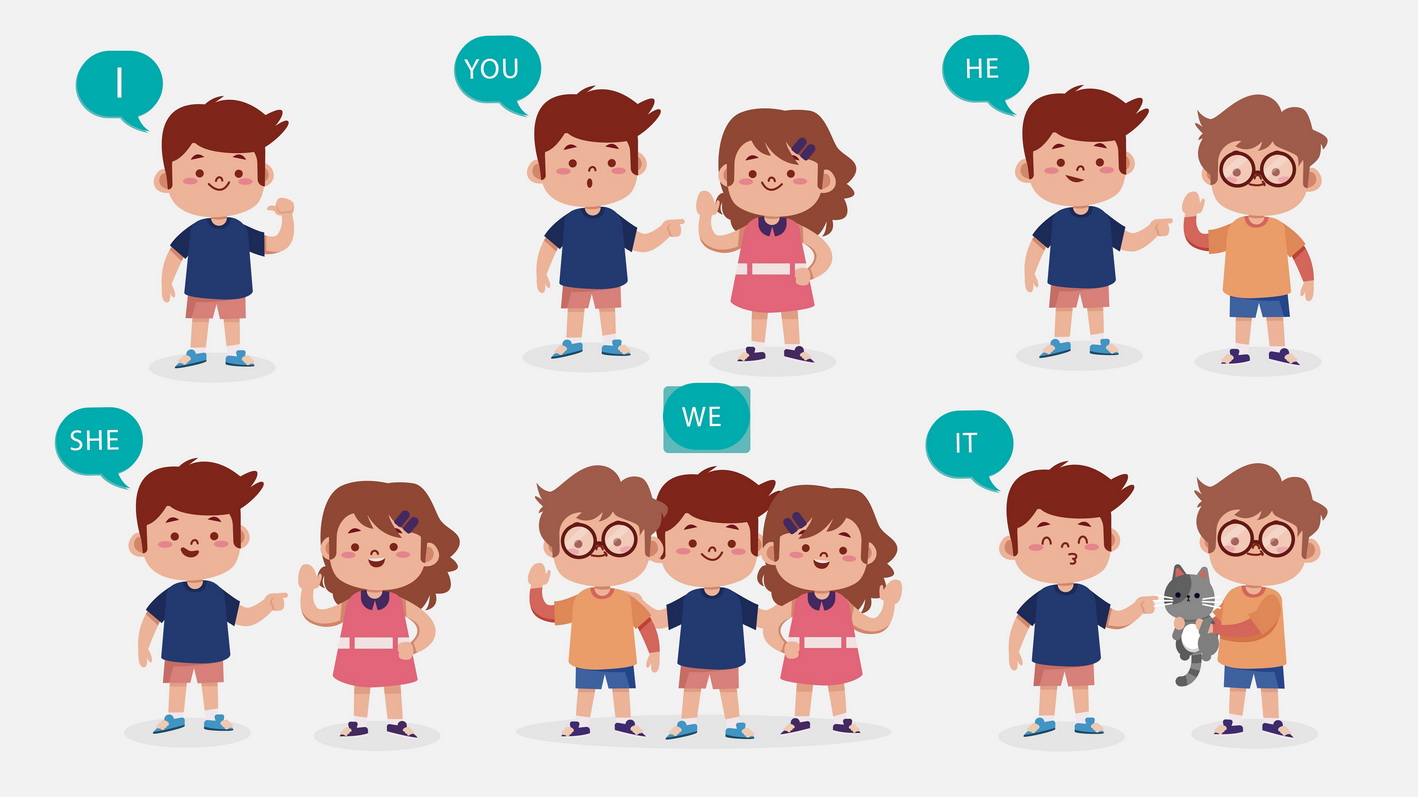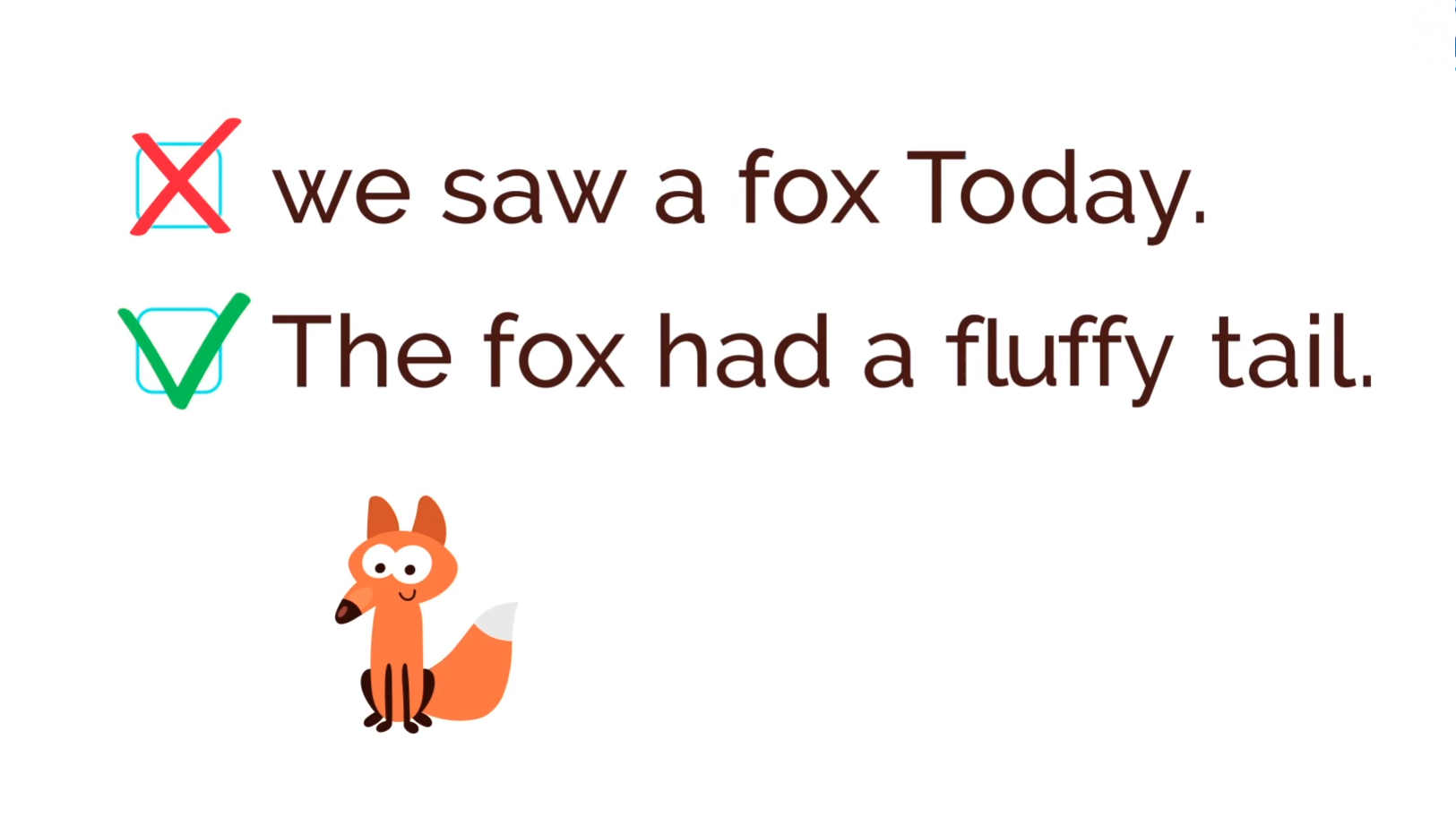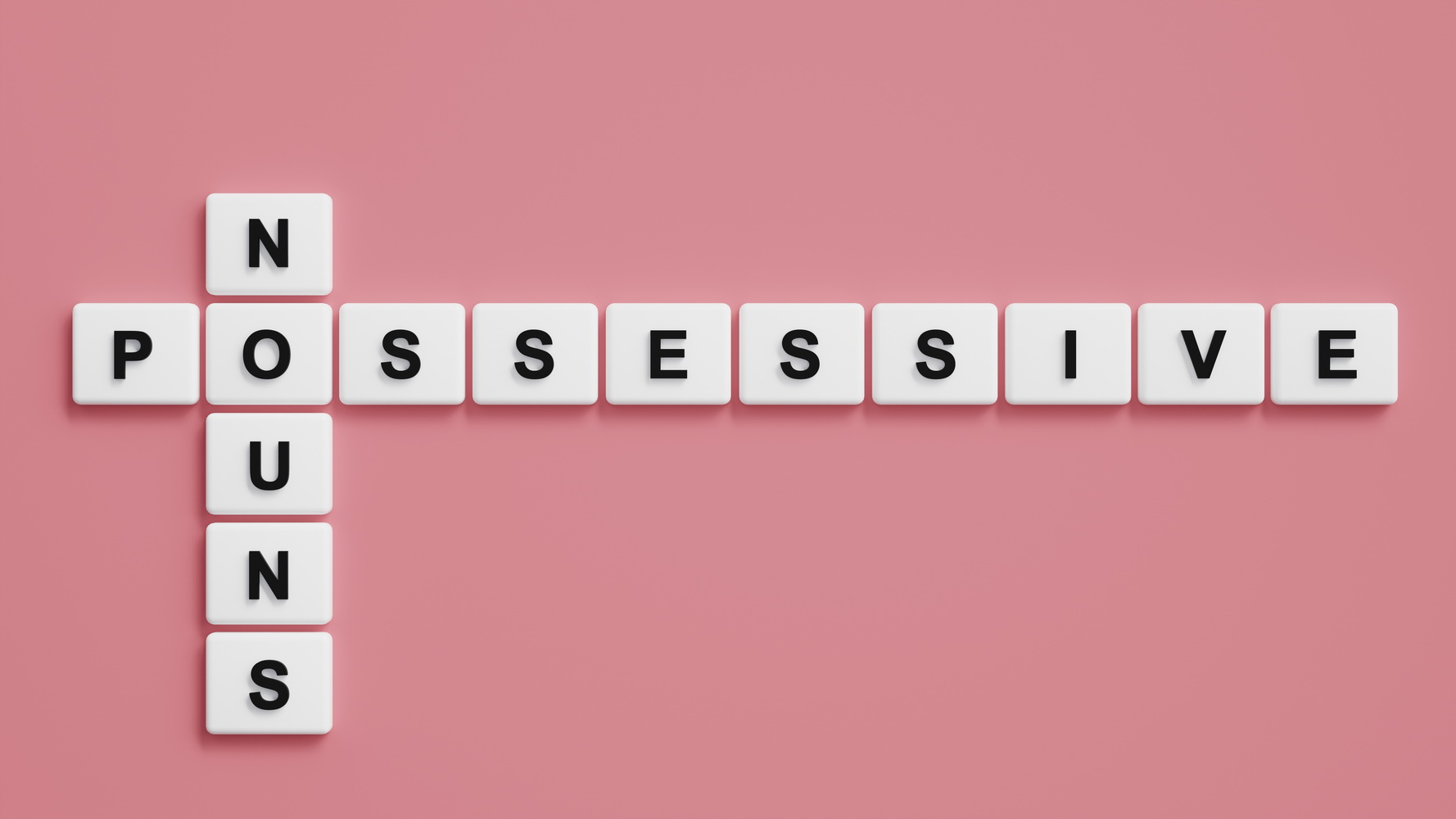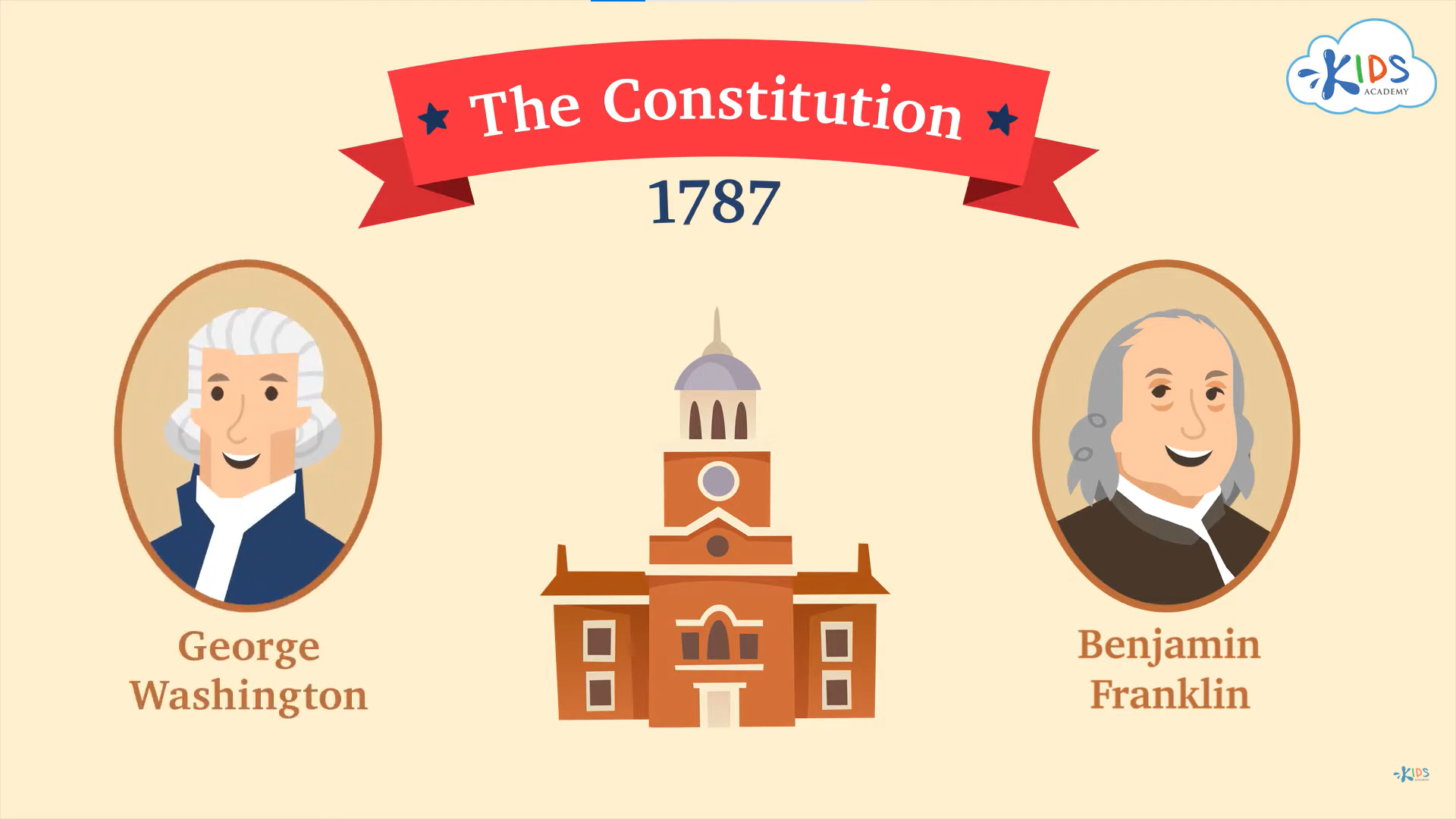Didactic Materials
Pronouns for Grade One: Indefinite, Personal, and Possessive
Oct. 17, 2025

When introducing pronouns to first graders, be prepared to deal with some confusion. Students will need to make sense of the different categories of pronouns, and all the words that fall within each group, which could make pronouns looks like a big intimidating topic. However, often little learners get to love pronouns realizing that they function almost like a shortcut. Instead of repeating someone’s name over and over, one can just use a small word called a pronoun!
In this article we review the theory on each type of pronouns relevant for Grade 1 and offer some free interactive learning resources for your students to practice this topic.
End Punctuation Explained for 1st Grade
Sept. 24, 2025

If you’ve ever read a social media post in which a user leaves out punctuation, then you know exactly how frustrating it is to make sense out of the words on the screen. That’s because punctuation is at the very core of effective written communication. Without it, readers often struggle to make sense of the writer’s words and intentions. Punctuation allows sentences to form complete thoughts and signal whether the writer is making a statement, asking a question, or conveying emotion.
Because it’s so vital to clear communication, children begin learning about the simplest forms of punctuation as they learn to write sentences and questions. In general, first graders typically begin by learning how to use end punctuation.
Capitalization for Grade 1: Dates, Names, and Beginning of Sentences
Sept. 17, 2025

Capitalization is an important concept to teach because it helps readers understand where sentences begin, and to distinguish proper pronouns, titles, and dates. Later, when children grow into more sophisticated writers, they will be expected to adhere to writing conventions, such as capitalization, when writing essays and in professional contexts.
It may seem tricky to figure out where to start when it comes to teaching your little learner to use proper capitalization. To begin, start with what they already know: names, sentences, and dates.
Common Nouns vs. Proper Nouns: A Guide for 1st Grade
Sept. 10, 2025

After mastering common nouns, it’s time to introduce proper nouns. Some proper nouns are tough for first graders to understand because some words can be both a common noun and a proper noun depending on the context in which the word is used.
Let’s explore more about the differences between common and proper nouns, and how to teach kids to properly capitalize proper nouns when they write them.
Common Nouns Explained for 1st Grade
Sept. 2, 2025

One of the first grammar rules children must master is the parts of speech. This refers to how words are used in sentences; does the word describe an action, or does it describe a person, place or thing? Parts of speech consist of many different types of words, from verbs to adjectives, and beyond. The simplest first step in teaching parts of speech cover common nouns. These are everyday words that kids use all the time!
In this article, you will learn about the types of common nouns and will find a selection of activities to practice this important topic.
Possessive Nouns for First Graders: Theory and Practice
Aug. 20, 2025

One notoriously difficult concept for first graders to master is possessive nouns. Confusion often stems from learning to use apostrophes in a new way, and the difference between singular and plural forms. Even adults struggle with knowing where to put the apostrophe, and what to do when the word naturally ends in the letter “s”.
The best way to tackle this tricky skill is to face it head on and practice as much as possible! Keep reading to discover all the resources that Kids Academy offers to help your first grader master possessive nouns.
Daily Knowledge Boost with Kids Academy: Phonics and Word Recognition for 3rd Graders
Jan. 27, 2025

As children enter 3rd grade, they become ready to build on their vocabulary and reading skills. This is a great time to introduce more complex word recognition strategies as it helps children decode unfamiliar words and can improve their reading comprehension. In addition, this will help improve children’s vocabulary and support their spelling and pronunciation.
Daily Knowledge Boost with Kids Academy: Civic Studies for 3rd Grade
Jan. 4, 2025

Today’s daily knowledge boost gives children a chance to explore Citizen Rights’ and Freedom, Laws and Governance, and the Three Branches of Government.
Daily Knowledge Boost with Kids Academy: Fractions for Grade 3
Dec. 9, 2024

One math concept that students spend a lot of time on, especially in 3rd grade, is fractions. Manipulating fractions is an important skill for students to master because it can build a foundation for more complex topics, develop their critical thinking skills, and help kids better understand more abstract concepts and establish connections across multiple subjects.
Today’s daily knowledge boost provides students in 3rd grade with in-depth study of fractions: making and representing fractions, as well as comparing fractions through their denominator and numerator.
Daily Knowledge Boost with Kids Academy: Place Value for Grade 2
Dec. 3, 2024

As students progress through the grades, math concepts begin to get more complex. Understanding place value helps children in 2nd grade as it is a foundation to number sense and math operations. Today’s daily knowledge boost will give children an opportunity to explore the place value of ones, tens, and hundreds as well as a slightly more challenging topic of expanded formation.








